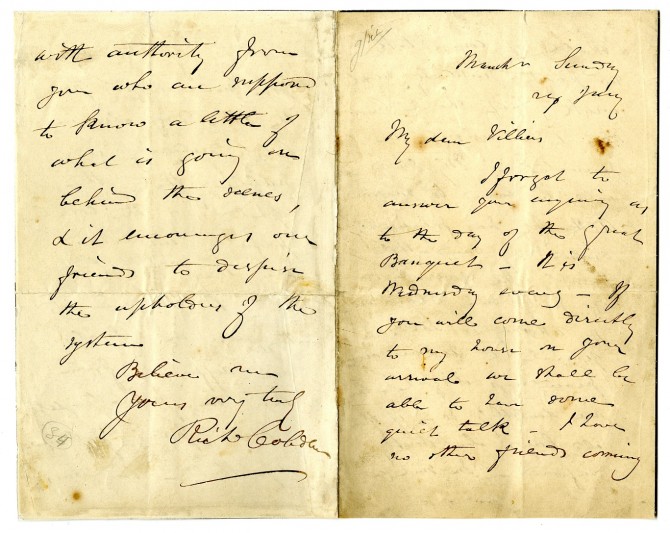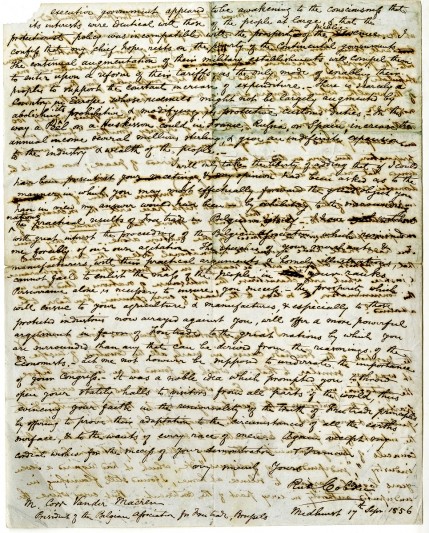These two letters from Richard Cobden to Charles Pelham Villiers and Michael Corr Van der Maeren provide an important insight into Cobden’s political views and will be of great interest to 19th century political historians, particularly when viewed in conjunction with the Cobden Archive held by West Sussex Record Office. Villiers was the chief parliamentary ally of the Anti-Corn Law League whilst Van der Maeren was the founder of the Belgium Association for Free Trade. Cobden corresponded with both regularly.
In the letter to Villiers dated 29 Jan [1843], Cobden expresses his concern that the government might persuade the Attorney or Solicitor General to declare their proceedings illegal. He also writes of the ‘Great Banquet’, which was organised by the Anti-Corn Law League and held at the newly built Wooden Free Trade Hall in Manchester. On a more personal note, he refers to the burial of one of his children, his daughter, Kate, who died aged just seven months, which resulted in his temporary withdrawal from public life.
Cobden’s letter to Michael Corr Van der Maeren, dated 17 Sep 1856, contains intriguing insights into his views on Free Trade. He argues that the full benefits of free trade will only be realized when it has become the ‘international code of the civilised world’, and claims that many countries in Europe would increase their revenues by abolishing protective customs duties and so benefit greatly from the introduction of Free Trade.
Cobden was born in 1803 at a farmhouse called Dunford, in Heyshott near Midhurst, West Sussex. He spent much of his adult life in Manchester, but in 1847 he repurchased Dunford, rebuilding the house in 1852-53 and occupying it until his death in 1865. The Cobden Archive at West Sussex Record Office includes accounts, diaries and journals, articles and speeches, scrapbooks, photographs and drawings relating to the Cobden family. Significantly it contains an extensive collection of correspondence between Richard Cobden and other leading 19th century political figures including John Bright, William Gladstone and Robert Peel.
The purchase of the Villiers and Van der Maeren letters has allowed them to be united with the Cobden Archive and to be viewed in the context of Cobden’s other correspondence with these two men, as well as other significant political figures. Taken together as a body, these letters provide an important insight into Cobden’s political views and activities and are an invaluable resource for 19th century political historians.

